Publications
Articles, publications, books, tools and multimedia features from the U.S. Institute of Peace provide the latest news, analysis, research findings, practitioner guides and reports, all related to the conflict zones and issues that are at the center of the Institute’s work to prevent and reduce violent conflict.
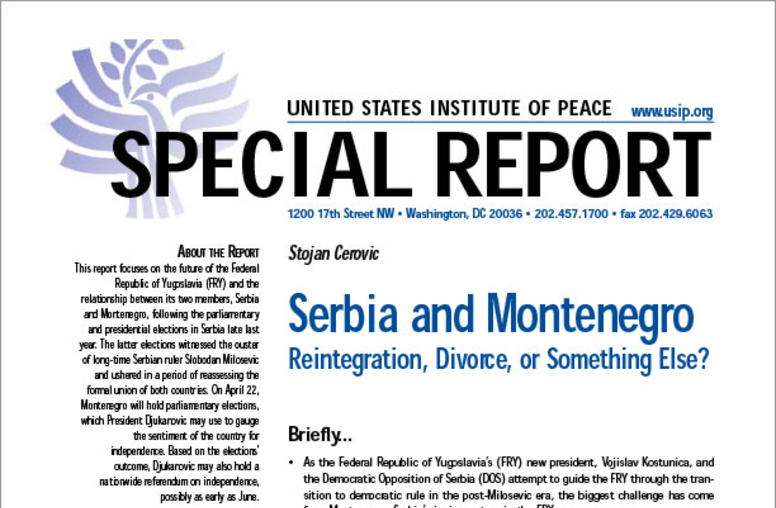
Serbia and Montenegro: Reintegration, Divorce, or Something Else?
As the Federal Republic of Yugoslavia's (FRY) new president, Vojislav Kostunica, and the Democratic Opposition of Serbia (DOS) attempt to guide the FRY through the transition to democratic rule in the post-Milosevic era, the biggest challenge has come from Montenegro, Serbia's junior partner in the FRY.
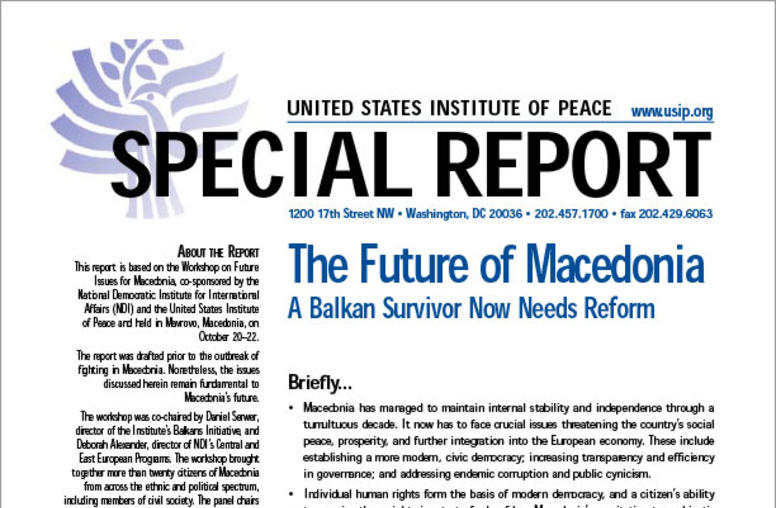
The Future of Macedonia: A Balkan Survivor Now Needs Reform
Macedonia has managed to maintain internal stability and independence through a tumultuous decade. It now has to face crucial issues threatening the country's social peace, prosperity, and further integration into the European economy. These include establishing a more modern, civic democracy; increasing transparency and efficiency in governance; and addressing endemic corruption and public cynicism.
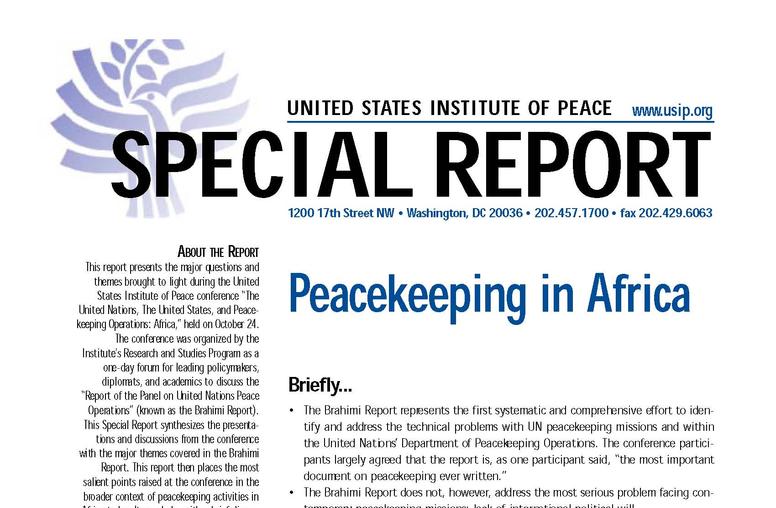
Peacekeeping in Africa
Summary PART ONE The Brahimi Report represents the first systematic and comprehensive effort to identify and address the technical problems with UN peacekeeping missions and within the United Nations' Department of Peacekeeping Operations. The conference participants largely agreed that the report is, as one participant said, "the most important document on peacekeeping ever written." The Brahimi Report does not, however, address the most serious problem facing contemporary peace...
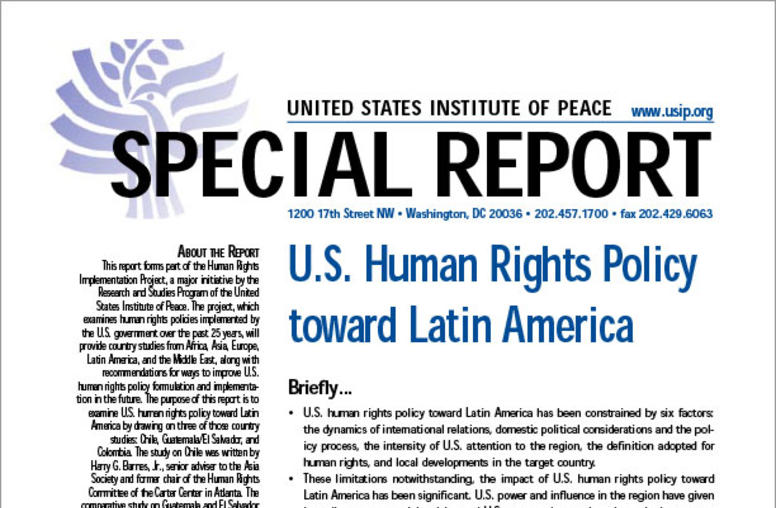
U.S. Human Rights Policy toward Latin America
Summary U.S. human rights policy toward Latin America has been constrained by six factors: the dynamics of international relations, domestic political considerations and the policy process, the intensity of U.S. attention to the region, the definition adopted for human rights, and local developments in the target country.
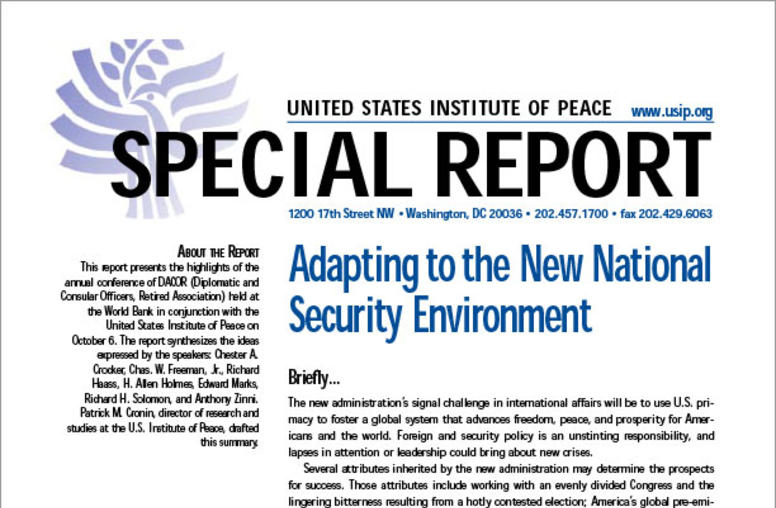
Adapting to the New National Security Environment
Summary The new administration's signal challenge in international affairs will be to use U.S. primacy to foster a global system that advances freedom, peace, and prosperity for Americans and the world. Foreign and security policy is an unstinting responsibility, and lapses in attention or leadership could bring about new crises. Several attributes inherited by the new administration may determine the prospects for success. Those attributes include working with an evenly divided Congres...
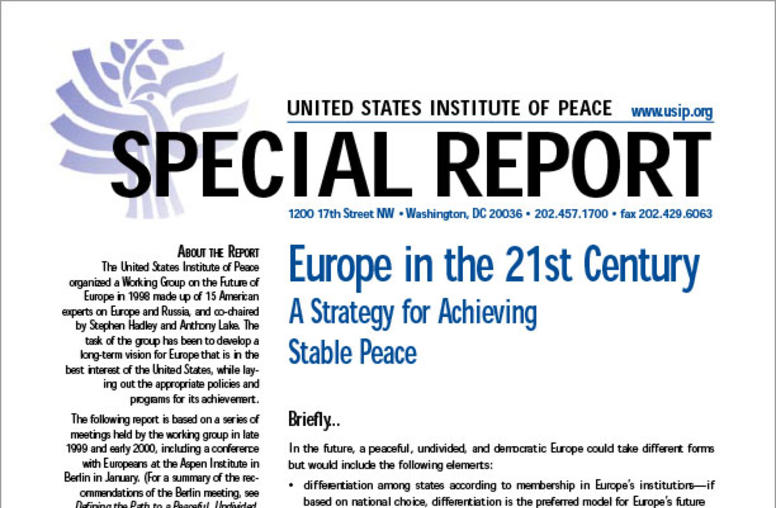
Europe in the 21st Century: A Strategy for Achieving Stable Peace
Summary In the future, a peaceful, undivided, and democratic Europe could take different forms but would include the following elements: differentiation among states according to membership in Europe's institutions--if based on national choice, differentiation is the preferred model for Europe's future a stable peace among European states the integration of Russia into Europe a more equal relationship between the European Union and the United States in European affairs and gl...
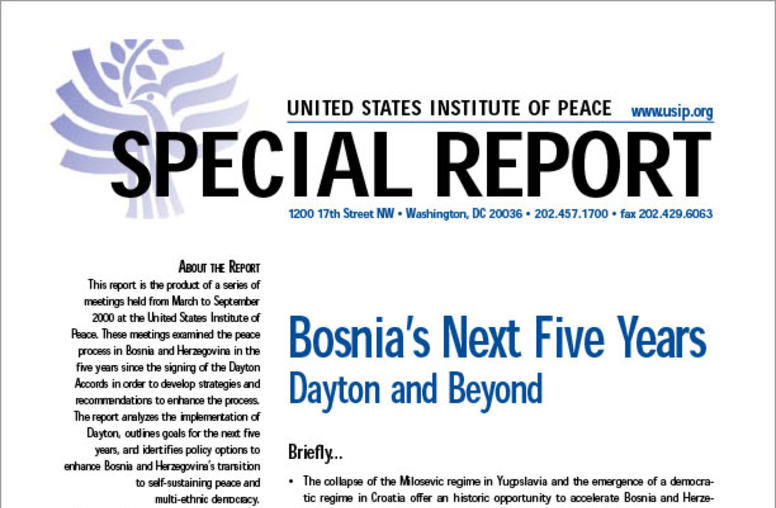
Bosnia's Next Five Years: Dayton and Beyond
The Dayton Upgrade Project at the United States Institute of Peace held a series of meetings to examine the peace process in Bosnia in the five years since the signing of the Dayton Accords. Subjects addressed included post-war security structures in Bosnia, institution building, economic restructuring, ethnicity, and nationalism.
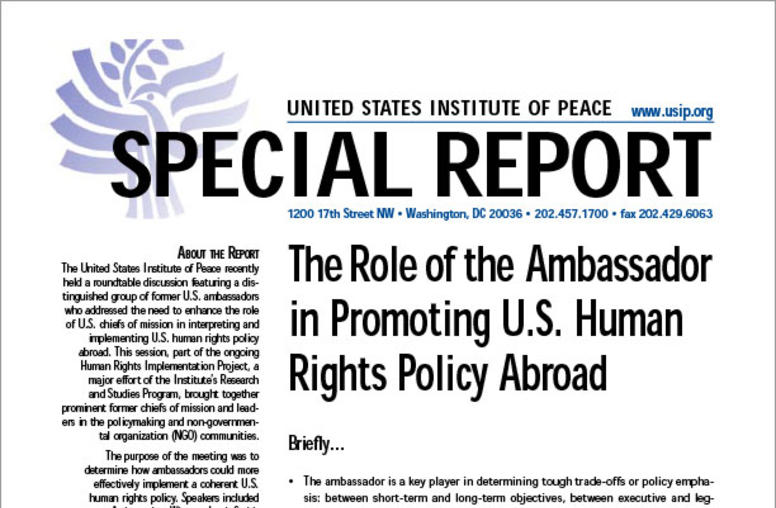
The Role of the Ambassador in Promoting U.S. Human Rights Policy Abroad
Summary The ambassador is a key player in determining tough trade-offs or policy emphasis: between short-term and long-term objectives, between executive and legislative priorities, between strategic interests and specific human rights concerns, between public and private diplomacy, between coercive and cooperative approaches, and between unilateral and multilateral approaches to specific problems.
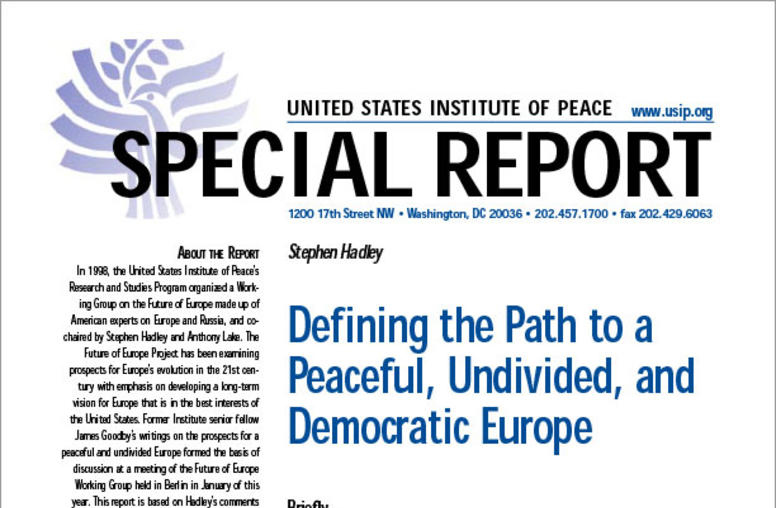
Defining the Path to a Peaceful, Undivided, and Democratic Europe
Summary A peaceful and undivided Europe must include both the United States and Russia if it is to be stable and successful over time. The United States wants a Europe that is a reliable strategic partner in trade and security issues, both in the region and potentially elsewhere. There can be considerable flexibility of form in the way this "single security community" of Europe arranges itself.
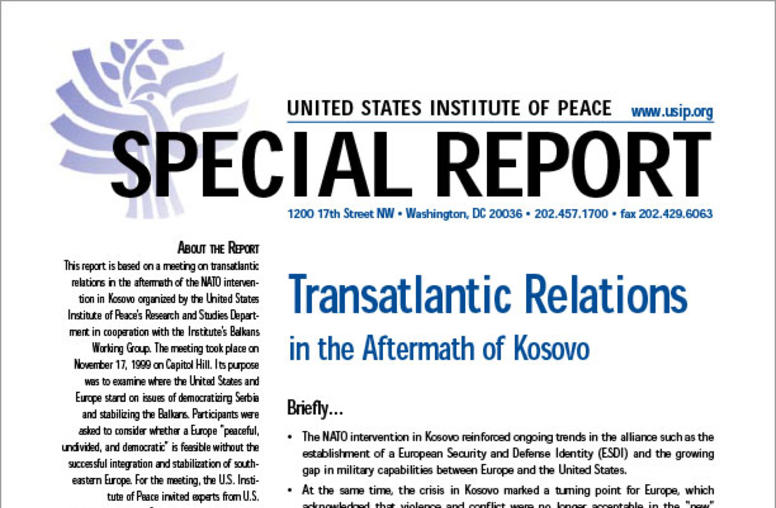
Transatlantic Relations In the Aftermath of Kosovo
Summary The NATO intervention in Kosovo reinforced ongoing trends in the alliance such as the establishment of a European Security and Defense Identity (ESDI) and the growing gap in military capabilities between Europe and the United States. At the same time, the crisis in Kosovo marked a turning point for Europe, which acknowledged that violence and conflict were no longer acceptable in the "new" Europe--even on its periphery.